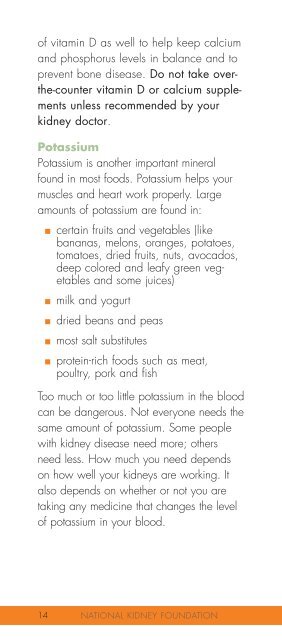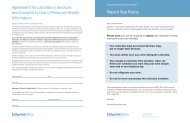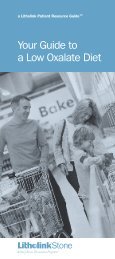Nutrition and Early Kidney Disease - Litholink
Nutrition and Early Kidney Disease - Litholink
Nutrition and Early Kidney Disease - Litholink
You also want an ePaper? Increase the reach of your titles
YUMPU automatically turns print PDFs into web optimized ePapers that Google loves.
of vitamin D as well to help keep calcium<strong>and</strong> phosphorus levels in balance <strong>and</strong> toprevent bone disease. Do not take overthe-countervitamin D or calcium supplementsunless recommended by yourkidney doctor.PotassiumPotassium is another important mineralfound in most foods. Potassium helps yourmuscles <strong>and</strong> heart work properly. Largeamounts of potassium are found in:n certain fruits <strong>and</strong> vegetables (likebananas, melons, oranges, potatoes,tomatoes, dried fruits, nuts, avocados,deep colored <strong>and</strong> leafy green vegetables<strong>and</strong> some juices)n milk <strong>and</strong> yogurtn dried beans <strong>and</strong> peasn most salt substitutesn protein-rich foods such as meat,poultry, pork <strong>and</strong> fishToo much or too little potassium in the bloodcan be dangerous. Not everyone needs thesame amount of potassium. Some peoplewith kidney disease need more; othersneed less. How much you need dependson how well your kidneys are working. Italso depends on whether or not you aretaking any medicine that changes the levelof potassium in your blood.14National <strong>Kidney</strong> Foundation








